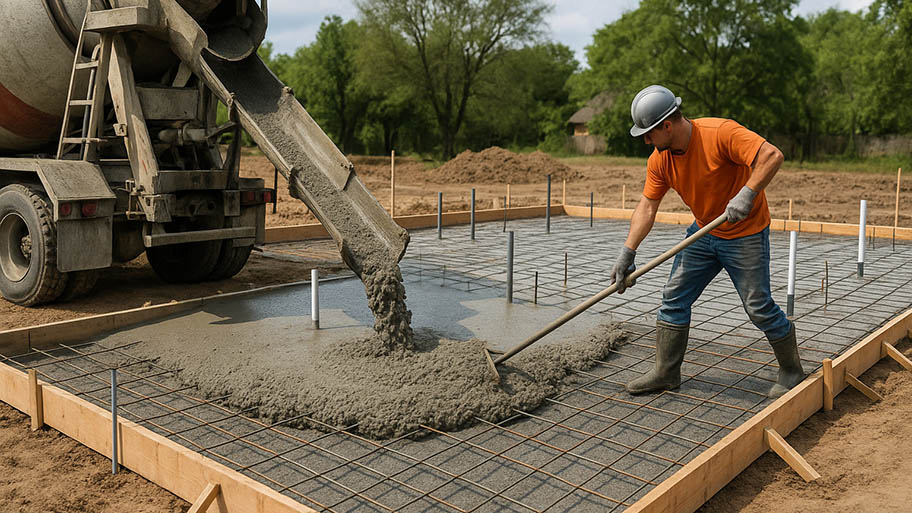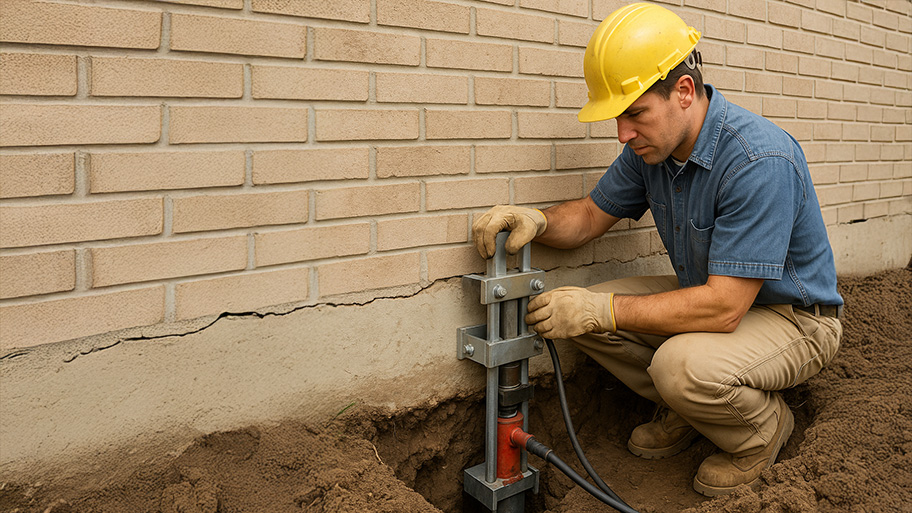
A foundation for a new-build home averages around $11,000. Find out all the factors that affect the cost of a foundation and how to save money.
It’s usually safe, but it will be disruptive


It’s usually safe to live in a house during foundation repair unless your home is in danger of collapsing.
Foundation repair will likely be disruptive, so relocating during the bulk of the work is a good idea.
Foundation repairs can take anywhere from one to three days, depending on the work you need.
Discovering that your home’s foundation is damaged and needs repair can be a stressful and expensive experience. You may not want to add the additional stress and costs of relocating during the repair, but it might be a good idea. In this guide, we’ll explain whether or not you can live in a house during foundation repair and what you need to consider if you decide not to relocate.
It is usually safe to live in a house during foundation repair, except when the damage is significant enough to make the home unsafe. If you’re dealing with major structural damage that could cause a full or partial structure collapse, you should relocate immediately and avoid moving back in until the repairs are completed. As a rule of thumb, if your home is safe to live in before the repairs, you can usually live there during the repairs.
With that being said, foundation repairs are disruptive, and it can be unsettling to hear the construction noises, so you might want to relocate temporarily while your contractors are on-site.
The extent and severity of the foundation damage will dictate whether or not you can live in your home during the repair. In cases of extreme structural damage involving differential settlement, sinking foundations, or collapsed foundation walls, a structural engineer will likely deem your house unfit for habitation and may require that you relocate until the repairs are done.

Yes, foundation repair will almost always be disruptive. Your entire home rests on your foundation, so you might feel slight vibrations. You should expect to hear loud noises, including drills and excavation equipment, as well as creaking in your structure as it adapts to any foundation movement underneath. These can be unsettling, but again, provided your home was safe to live in beforehand, the repairs won’t make staying there during the work dangerous.
In some cases, you’ll have foundation contractors in your home to access the slab or get into the basement or crawl space. If your professionals are jacking up your home and installing supportive piers underneath, you’ll also have contractors in your living space keeping an eye on the progress.
Foundation repair takes between one and three days in most cases, but the exact timeline will depend on the work you need done. If you do plan on relocating during the work, you can get a timeline from your local foundation repair company to make the necessary arrangements.
In most cases, smaller jobs like sealing foundation cracks, mudjacking, and replacing rotted beams and supports will take just a single day. More intensive projects like underpinning, installing tiebacks on foundation walls, and installing complete drainage systems like French drains will likely take two to three days.
From average costs to expert advice, get all the answers you need to get your job done.

A foundation for a new-build home averages around $11,000. Find out all the factors that affect the cost of a foundation and how to save money.

Whether trying to protect it or transport it, raising a house is no small feat. Read on to find out everything you need to know about the cost to raise a house.

A bowing basement wall needs immediate repair. Learn how much it costs to repair a bowing basement wall and what factors can affect the final price tag.

Identifying foundation issues early is the best way to avoid severe, expensive damage. Use this foundation inspection guide to check for budding problems.

Ask these 16 questions about experience, pricing, timelines, and more to choose the best professional for your concrete project.

A house’s history of foundation repairs doesn’t always mean you shouldn’t buy it. Learn what to consider when purchasing a house with an unstable past.